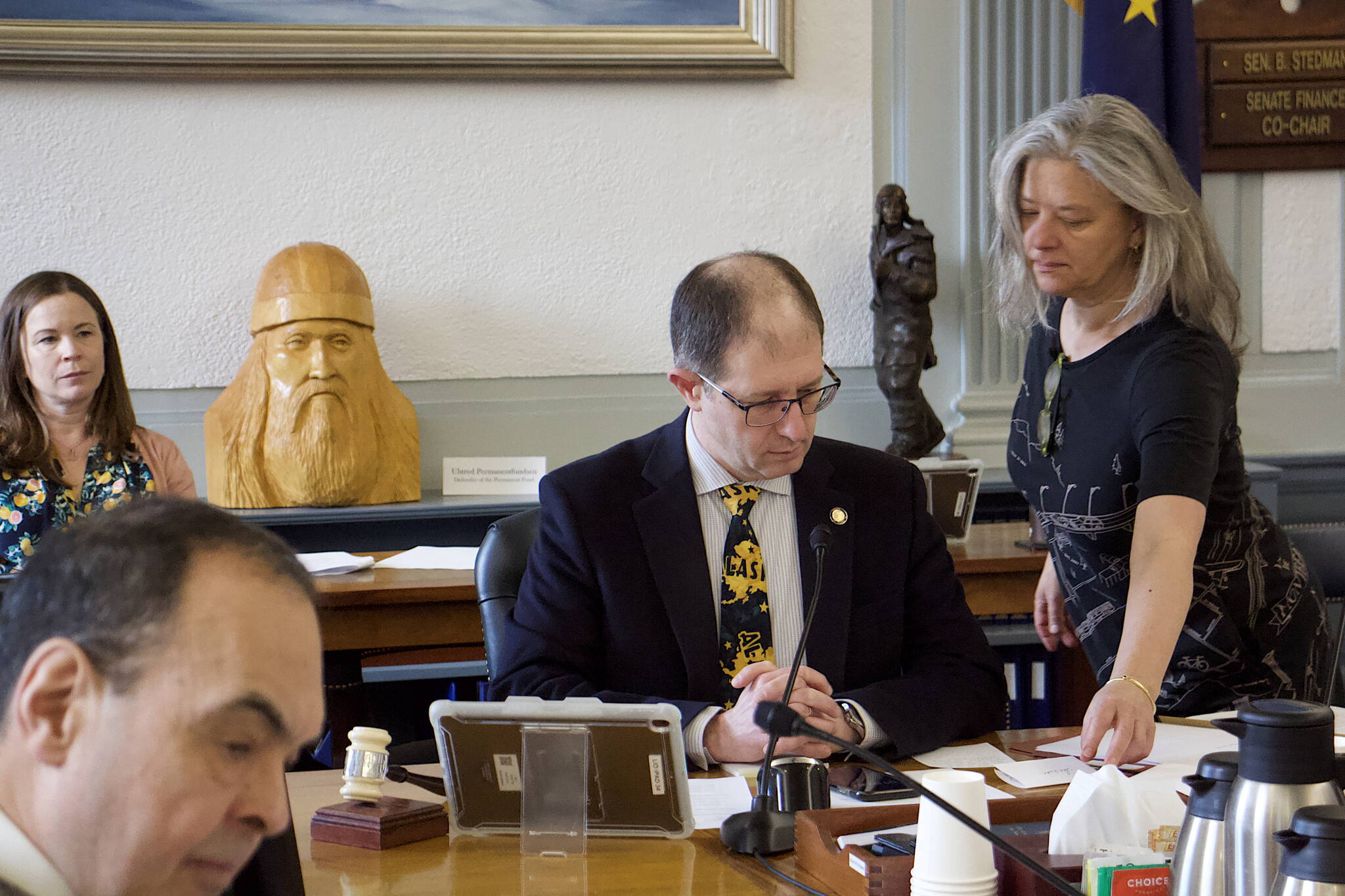Relatively small items with big impacts, such as $165,000 for a public pool repair and $5 million for a state takeover of wetlands development permitting, dominated the initial public response Thursday to the state Senate’s proposed budget for next year.
Residents from Southeast Alaska and Prince William Sound got the first chance to testify during a two-hour Senate Finance Committee meeting Thursday morning, and for the most part their comments didn’t focus on some of the biggest financial and political issues this session such as the Permanent Fund dividend and public education spending.
Generally, however, people expressed similar sentiments to Senate leaders who are emphasizing stout funding for state programs and avoiding deficit spending, even if it means relatively small PFDs.
“As a 25-year resident of Alaska I would happily give up my PFD and pay an income tax if it was trade-off for a budget that supported children, families, educators including child care providers, and other Alaska citizens that need social support services from their government,” said Blue Shibler, executive director of the Association of Education For Young Children.
The first draft of the Senate’s budget for the fiscal year starting July 1 is something of a “fill in the blank” document, since it includes about $4.85 billion of mostly status quo spending while expecting about $6.25 billion in revenues. That leaves a surplus of about $1.4 billion to allocate to PFDs, extra education funding, capital improvement projects and other purposes.
The governor’s budget contains a deficit of nearly $1 billion and the House’s version a deficit of about $600 million, due primarily to a PFD of about $3,500 and $2,700, respectively. Senate leaders are currently supporting a $1,300 PFD that would consume about $800 million of the $1.4 billion surplus in that budget, as well as a 17%?? boost in public education funding that would cost another $257 million.
The most contentious issue for the initial commenters was allowing the state to take control from the federal government of the permitting process for “Section 404” wetlands development projects. The proposal introduced by Gov. Mike Dunleavy in his proposed budget, but removed in the House budget passed earlier this week, is favored by those who argue it will speed up development by removing burdensome regulators and opposed by people who environmental costs.
“If there’s an extra $5 million lying around I would urge you to invest more in Alaska’s embarrassing, underfunded, failing education system,” said Jim Ayers, a consultant focusing on conservation who was chief of staff to former Gov. Tony Knowles. “This is no time to mess around with water quality.”
One comment favoring the takeover was voiced by Kati Capozzi, president and CEO of the Alaska Chamber of Commerce. She said state permitting will improve the process without compromising federal standards — especially since federal officials in recent years have taken actions to inhibit development in the state.
“There have been significant federal administrative and legislative actions that have affect Alaska’s investment and business climate,” she said.
Sen. Kelly Merrick, an Eagle River Republican who chaired the subcommittee that reviewed the portion of the budget that included the takeover funding, said there wasn’t a “robust” discussion about the issue during those meetings, but it will likely be among the items discussed in detail by the full committee.
Among those appealing to lawmakers for small specific items was Kasey Kinsman, a member of Cordova’s City Council, who is hoping for the inclusion of $165,000 to replace the lining of a public pool.
“It’s not just parks and recreation, it is a lifeline for our schools, especially K through sixth grade,” he said. “We have right now a wonderful program established one hour a week where these students have an opportunity to go into this pool. It’s not just free time during that one hour — they learn how to swim, they learn water safety techniques.”
The Senate’s budget contains $191 million for capital projects, the bare minimum needed to qualify for federal matching funds already approved for projects. Ensuring such funds exist for harbor repairs was emphasized by Jamie Loan, a Whittier city official, who said more than 555,000 vehicles access the harbor annually largely via ferries, but facilities are in such disrepair they may lose one third of their capacity.
“We have less than 200 contributing taxpayers, which means we’re not going to be able to fund or repair this ourselves,” she said. “If the docks can’t be repaired quickly we’re going to be in real trouble here.”
The Senate is scheduled to continue taking public testimony through Friday before beginning debate on amendments next week in anticipation of sending it to the full Senate for a floor vote during the first week of May.
• Contact reporter Mark Sabbatini at mark.sabbatini@juneauempire.com

